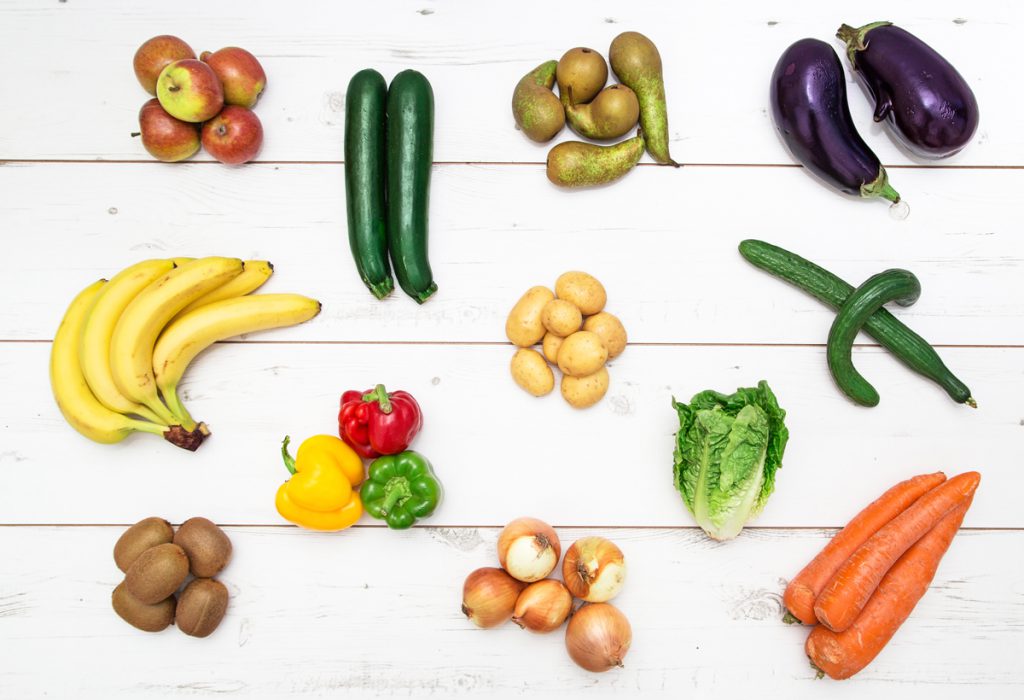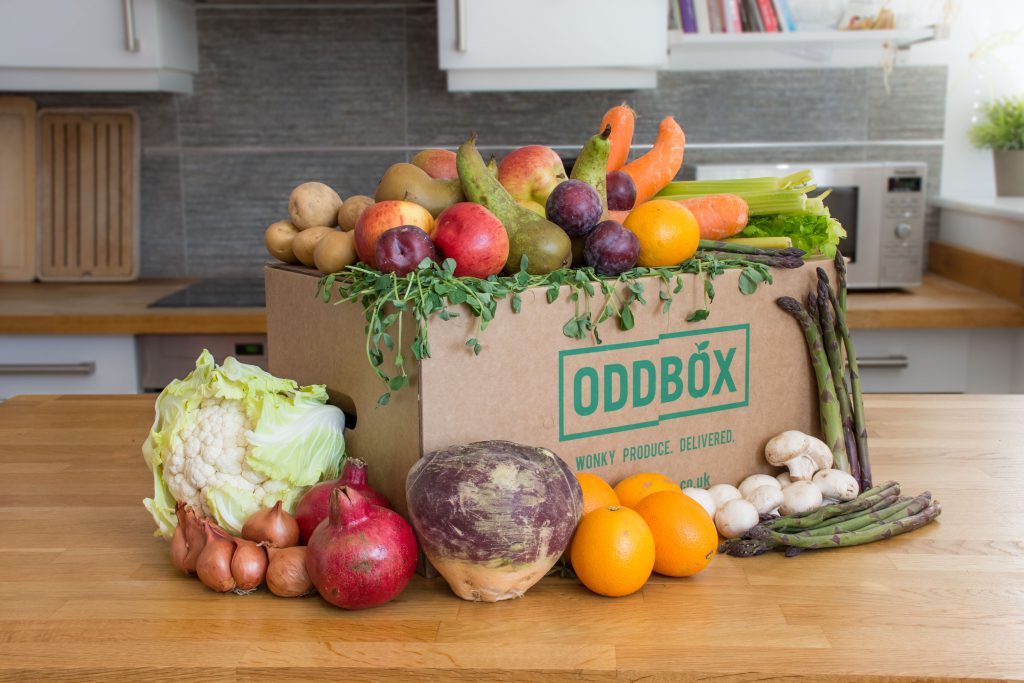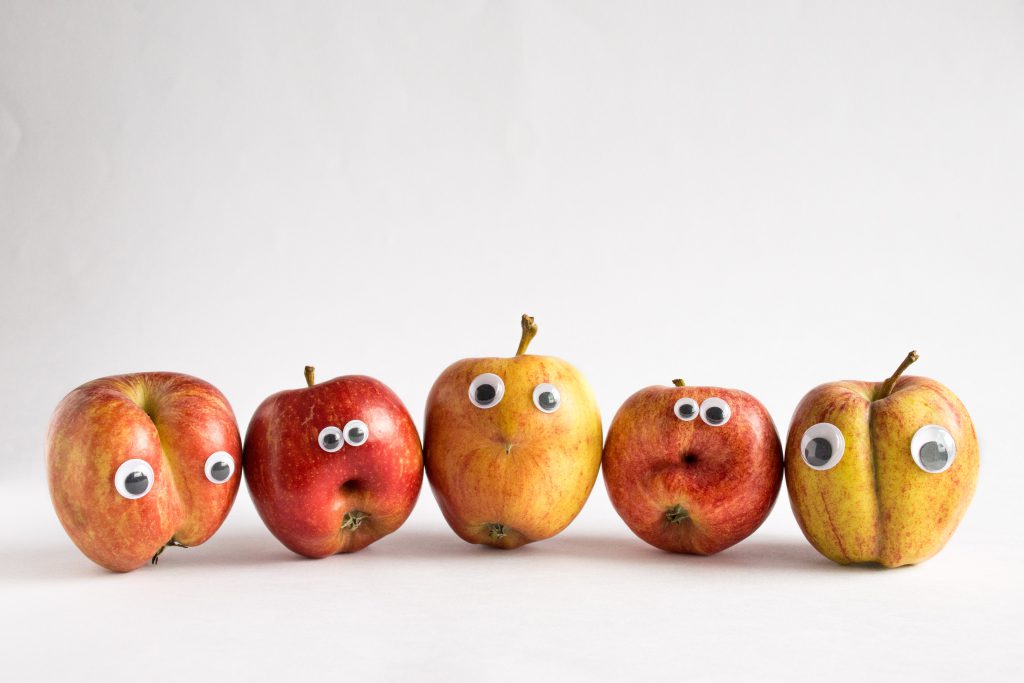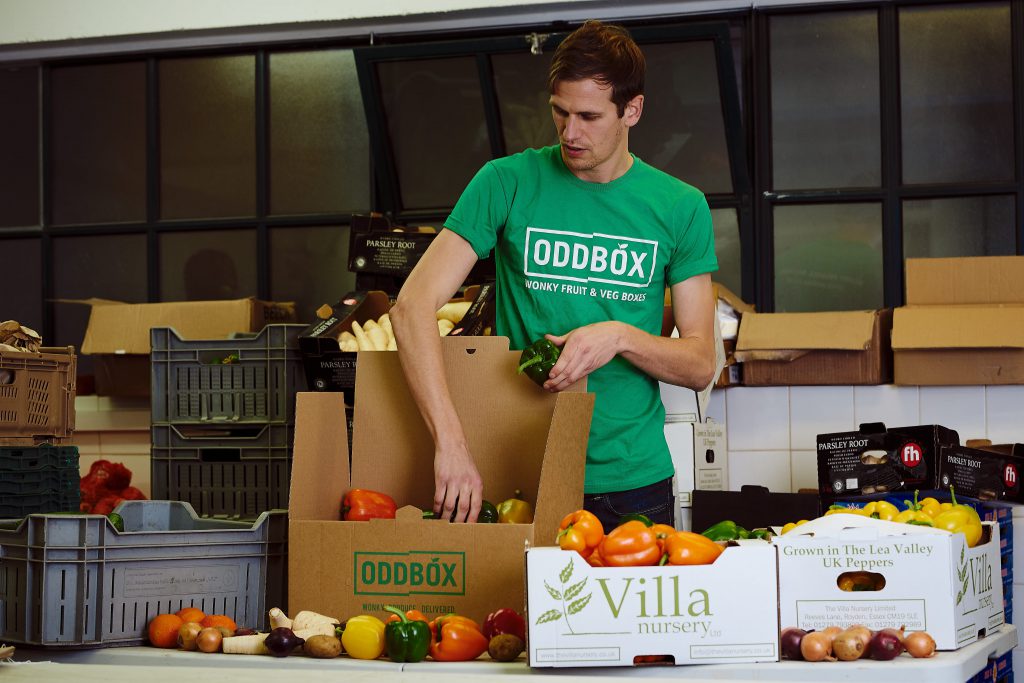Oddbox: The Success of the wonky vegetable business
Oddbox is London’s first sustainable business tackling food waste by delivering wonky fruit and vegetables to customers’ doors. WorldLabs met with one of the co-founders, Emilie Vanpoperinghe, to find out more about their entrepreneurial journey to success.
By Rute Costa
Oddbox is London’s first sustainable business tackling food waste by delivering wonky fruit and vegetables to customers’ doors. WorldLabs met with one of the co-founders, Emilie Vanpoperinghe, to find out more about their entrepreneurial journey to success.

The fight against food waste began with a tomato
The idea for OddBox was sparked by a wonky yet delicious Portuguese tomato that Emilie and her husband Deepak tasted in a street market whilst on holiday. Slowly, their entrepreneurial venture started to grow roots.
Sitting across from me, Emilie is animated as she recalls the first steps of her business. Upon returning to the UK, the co-founders started investigating why UK supermarkets were filled with “perfect looking produce which doesn’t taste of anything”. They found that “on average, 20 to 40% of all the fruit and vegetable produce doesn’t reach the supermarket shelves”. Due to old EU specifications which have now been lifted but are still strangely enforced by supermarkets, produce which doesn’t look standard, uniform or ‘normal’ is not bought or sold. The specifications behind this huge amount of waste don’t just refer to the shape of the produce, but also the size: slightly undersized onions, for example, are a no-no (even though Oddbox customers love them). “What happens to this produce?”, I ask. “It’s not usually picked up, it stays on the field – it rots and becomes compost because the growers can’t sell it, there’s no point”, Emilie tells me.
“On average, 20 to 40% of all the fruit and vegetable produce doesn’t reach the supermarket shelves”
Emilie and Deepak noticed there was a gap in the UK market for a sustainable business that saved this produce from becoming waste, by distributing wonky fruit and vegetables in a simple, affordable way. They visited growers and offered to pay a fair price for the picking and packaging of their surplus misfitted produce. Then, Oddbox began. During the weekend, the co-founders collected the produce, packed and delivered boxes of imperfect fruit and vegetables to 20 trial customers – a mixture of friends, neighbours and curious strangers. “That worked really well so we thought ‘Yes, people like it, they don’t care that the produce doesn’t look perfect’”, Emilie recounts. They rightly predicted that the interest for such a service would span beyond their first 20 people, and set out to reach more.

A single car is not enough: growth, expansion and impact
After 6 months of gathering suppliers and working out logistics, 2016 brought Oddbox up to 60 customers. 2017 saw that number multiply from 60 to 600, and now they supply 1,500 in mostly south-west and south-east London postcodes. They offer a range of home and office boxes, depending on the number of consumers. The co-founders are now full-time entrepreneurs and the team has expanded to include drivers: “20 boxes was the maximum we could fit in the car!” Emilie says, jokingly.
The feedback from customers couldn’t be better. “A lot of the time people want to do something good for the environment but they can’t afford to pay premium”, Emilie says. Because wonky produce is bought slightly cheaper, the odd boxes become affordable. Oddbox “means people can make a sustainable act without paying a premium”, says the co-founder. The absence of plastic packaging scores even more sustainability points amongst faithful customers. Emilie has heard from families who say “Oddbox is the highlight of my week, my kids run to the door to get the box, it’s like christmas every week and they love it”. For the children, Oddbox brings “fun and excitement”, and “encourages them to eat more fruit and veg”. For the adults, the seasonal ingredients in the boxes force them to innovate in the kitchen and cook more sustainably.
Oddox’s impact is not only environmental – it’s also social. Their partnerships with City Harvest and the People’s Fridge in Brixton see up to 10% of their produce being donated to charitable causes. “Because our aim is to tackle food waste, we wanted to make sure that we didn’t ourselves create it”, Emilie explains. Every monday, City Harvest collect Oddbox’s fresh surplus and redistributes it to food banks and soup kitchens. “It’s difficult for them to store fruit and veg, so the only way they get it is through organisations like City Harvest that do direct deliveries”, Emilie explains. Occasionally, an Oddbox also makes its way to the People’s Fridge, and becomes available for anyone to collect.
“A lot of the time people want to do something good for the environment but they can’t afford to pay premium”
When I ask Emilie about the future of Oddbox, she tells me clearly that “the plan is to reach 4,000 customers by the end of the year and 12,000 by the end of next year”. “We’ve got 2,500 people on our waiting list who are not in our delivery area but want to get an Oddbox. The plan is to expand to the whole of London first, then to other cities in the UK, and potentially mainland Europe”, she says. The demand for wonky vegetables is high, and the Oddbox team doesn’t want to leave requests unanswered. That is why they are raising their first round of investment: so that growth can happen more efficiently and wonky vegetables can amuse more and more customers.

From one entrepreneur to another
Oddbox’s establishment and growth is a story of undeniable entrepreneurial success, and I am eager to dig deeper. I ask Emilie if she always knew she wanted to be an entrepreneur. “I think I’ve always wanted to have my own business, but I also always wanted to do something which had a purpose. That’s why I moved from the private sector to the charity sector. You spend 50 hours a week working, so there’s no point in spending them doing something that you hate”. Whilst Emilie greatly believed in her work as Finance and Operations Director for an International Development charity, she soon grew frustrated about depending on other people’s decisions. With Oddbox, she found “the best of both worlds” – the satisfaction of owning her venture and doing something meaningful.
But entrepreneurship isn’t always easy. “Having your own business is exciting but sometimes scary and frustrating – you get everything. Some days everything is going fine, and some days lots of things go wrong. Yesterday, one of our drivers’ vans broke down, and so we had to find a solution. There are a lot of issues you continually have to deal with. We haven’t taken holidays for the past two years. But then again you can control what you’re doing: you get some huge highs, as well as lows”, Emilie explains.
“And what have you learnt from the journey?”, I want to know. “When you start as an entrepreneur, you think that you shouldn’t share your idea because everybody will steal it. That doesn’t happen because the most difficult thing is not to have the idea, but to execute it. I’m sure there are thousands of people who thought of starting a wonky vegetable business, but we are still the only one in London”, Emilie says. She highlights the importance of talking to people about your idea, testing it on them, learning, gathering feedback and advice. “The other good thing about sharing is that you commit yourself. Once you start telling people you’re going to do something, you then don’t want to go back on your word”, Emilie says.
“When you start as an entrepreneur, you think that you shouldn’t share your idea because everybody will steal it. That doesn’t happen because the most difficult thing is not to have the idea, but to execute it.”
According to Emilie, entrepreneurs don’t have to be incredibly creative geniuses:“there are lots of ideas which are simple, but that doesn’t mean they’re not good business ideas. It doesn’t need to be something very innovative to be a good business”. Neither do they need to be experts in the particular field of their business: “You don’t necessarily have to have expertise in something, because ideally, as an entrepreneur, you’d need expertise in everything! You’ll end up doing sales, marketing, finance, operations, legal, everything”. All in all, Emilie advocates for surrounding yourself with a skilled and versatile team, and asking other people for advice. “Talk to people and don’t be afraid to ask for help. There will be plenty of things that you don’t know in the beginning but it’ll surprise you how many people will offer their expertise. That’s the fastest way to learn and grow the business, instead of trying to do everything yourself.” Well said. Entrepreneurs take note.

Photo credits: Oddbox
